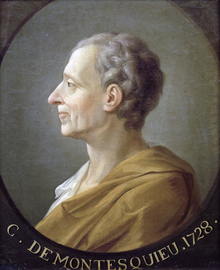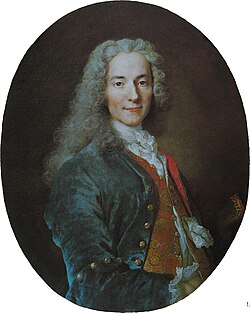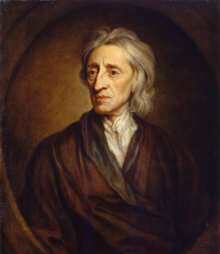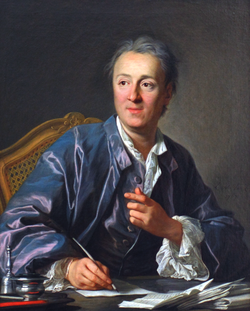
Charles-Louis de Secondat, Baron de La Brède et de Montesquieu
BIOGRAPHY
Montesquieu was born at the Château de la Brède in the southwest of France, 25 km south of Bordeaux. His father, Jacques de Secondat, was a soldier with a long noble ancestry. His mother, Marie Françoise de Pesnel, who died when Charles was seven, was an heiress who brought the title of Barony of La Brède to the Secondat family.After the death of his mother he was sent to the Catholic College of Juilly, a prominent school for the children of French nobility, where he remained from 1700 to 1711.His father died in 1713 and he became a ward of his uncle, the Baron de Montesquieu. He became a counselor of the Bordeaux Parliament in 1714. In 1715 he married Jeanne de Lartigue, a Protestant, who eventually bore him three children. The Baron died in 1716, leaving him his fortune as well as his title, and the office of Président à Mortier in the Bordeaux Parliament.
IDEAS PRESENTED
Montesquieu's philosophy of history minimized the role of individual persons and events. He expounded the view in Considérations sur les causes de la grandeur des Romains et de leur décadence that each historical event was driven by a principal movement:
It is not chance that rules the world. Ask the Romans, who had a continuous sequence of successes when they were guided by a certain plan, and an uninterrupted sequence of reverses when they followed another. There are general causes, moral and physical, which act in every monarchy, elevating it, maintaining it, or hurling it to the ground. All accidents are controlled by these causes. And if the chance of one battle—that is, a particular cause—has brought a state to ruin, some general cause made it necessary for that state to perish from a single battle. In a word, the main trend draws with it all particular accidents.
In discussing the transition from the Republic to the Empire, he suggested that if Caesar and Pompey had not worked to usurp the government of the Republic, other men would have risen in their place. The cause was not the ambition of Caesar or Pompey, but the ambition of man.
CREDITS TO:
https://en.wikipedia.org/wiki/Montesquieu

Jean-Jacques Rousseau
BIOGRAPHY
Rousseau was born in Geneva, which was at the time a city-state and a Protestant associate of the Swiss Confederacy. Since 1536, Geneva had been a Huguenot republic and the seat of Calvinism. Five generations before Rousseau, his ancestor Didier, a bookseller who may have published Protestant tracts, had escaped persecution from French Catholics by fleeing to Geneva in 1549, where he became a wine merchant.
Finding himself on his own, since his father and uncle had more or less disowned him, the teenage Rousseau supported himself for a time as a servant, secretary, and tutor, wandering in Italy (Piedmont and Savoy) and France. During this time, he lived on and off with De Warens, whom he idolized and called his "maman". Flattered by his devotion, De Warens tried to get him started in a profession, and arranged formal music lessons for him. At one point, he briefly attended a seminary with the idea of becoming a priest.
When Rousseau reached 20, De Warens took him as her lover, while intimate also with the steward of her house. The sexual aspect of their relationship (in fact a ménage à trois) confused Rousseau and made him uncomfortable, but he always considered De Warens the greatest love of his life. A rather profligate spender, she had a large library and loved to entertain and listen to music. She and her circle, comprising educated members of the Catholic clergy, introduced Rousseau to the world of letters and ideas.
On July 4, 1778, Rousseau was buried on the Île des Peupliers which became a place of pilgrimage for his many admirers. On October 11, 1794, his remains were moved to the Panthéon, where they were placed near the remains of Voltaire. In May 1814, during the Bourbon Restoration, the remains of Rousseau and Voltaire were secretly retrieved from the Panthéon by some religious fanatics, and buried in a dumping ground near Paris; the remains are now untraceable.
IDEAS PRESENTED
Theory of Natural Human
In common with other philosophers of the day, Rousseau looked to a hypothetical State of Nature as a normative guide.
Rousseau criticized Hobbes for asserting that since man in the "state of nature... has no idea of goodness he must be naturally wicked; that he is vicious because he does not know virtue". On the contrary, Rousseau holds that "uncorrupted morals" prevail in the "state of nature" and he especially praised the admirable moderation of the Caribbeans in expressing the sexual urgedespite the fact that they live in a hot climate, which "always seems to inflame the passions".
Rousseau asserted that the stage of human development associated with what he called "savages" was the best or optimal in human development, between the less-than-optimal extreme of brute animals on the one hand and the extreme of decadent civilization on the other. "...[N]othing is so gentle as man in his primitive state, when placed by nature at an equal distance from the stupidity of brutes and the fatal enlightenment of civil man". Referring to the stage of human development which Rousseau associates with savages, Rousseau writes:
Hence although men had become less forebearing, and although natural pity had already undergone some alteration, this period of the development of human faculties, maintaining a middle position between the indolence of our primitive state and the petulant activity of our egocentrism, must have been the happiest and most durable epoch. The more one reflects on it, the more one finds that this state was the least subject to upheavals and the best for man, and that he must have left it only by virtue of some fatal chance happening that, for the common good, ought never to have happened. The example of savages, almost all of whom have been found in this state, seems to confirm that the human race had been made to remain in it always; that this state is the veritable youth of the world; and that all the subsequent progress has been in appearance so many steps toward the perfection of the individual, and in fact toward the decay of the species. CREDITS TO:
https://en.wikipedia.org/wiki/Jean-Jacques_Rousseau

François-Marie Arouet
BIOGRAPHY
François-Marie Arouet was born in Paris, the youngest of the five children(three of whom survived) of François Arouet (1650 – 1 January 1722), a lawyer who was a minor treasury official, and his wife, Marie Marguerite d'Aumart (ca. 1660 – 13 July 1701), from a noble family of the province of Poitou. Some speculation surrounds his date of birth, which Voltaire always claimed to be 20 February 1694. Voltaire was educated by the Jesuits at the Collège Louis-le-Grand (1704–1711), where he learned Latin and Greek; later in life he became fluent in Italian, Spanish, and English.
By the time he left school, Voltaire had decided he wanted to be a writer, against the wishes of his father, who wanted him to become a lawyer. Voltaire, pretending to work in Paris as an assistant to a notary, spent much of his time writing poetry. When his father found out, he sent Voltaire to study law, this time in Caen, Normandy. Nevertheless, he continued to write, producing essays and historical studies. Voltaire's wit made him popular among some of the aristocratic families with whom he mixed. His father then obtained a job for him as a secretary to the French ambassador in the Netherlands, where Voltaire fell in love with a French Protestant refugee named Catherine Olympe Dunoyer. Their scandalous elopement was foiled by Voltaire's father and he was forced to return to France.
Most of Voltaire's early life revolved around Paris. From early on, Voltaire had trouble with the authorities for critiques of the government and religious intolerance. These activities were to result in numerous imprisonments and exiles. One satirical verse about the Régent, in which Voltaire accused the Régent of incest with his own daughter, led to his imprisonment in the Bastille for eleven months.While there, he wrote his debut play, Œdipe. Its success established his reputation.
He mainly argued for religious tolerance and freedom of thought. He campaigned to eradicate priestly and aristo-monarchical authority, and supported a constitutional monarchy that protects people's rights.
IDEAS PRESENTED
Like other key Enlightenment thinkers, Voltaire was a deist, expressing the idea: "What is faith? Is it to believe that which is evident? No. It is perfectly evident to my mind that there exists a necessary, eternal, supreme, and intelligent being. This is no matter of faith, but of reason." Voltaire held mixed views of the Abrahamic religions but had a favourable view of Hinduism.
In a 1763 essay, Voltaire supported the toleration of other religions and ethnicities: "It does not require great art, or magnificently trained eloquence, to prove that Christians should tolerate each other. I, however, am going further: I say that we should regard all men as our brothers. What? The Turk my brother? The Chinaman my brother? The Jew? The Siam? Yes, without doubt; are we not all children of the same father and creatures of the same God?"
In one of his many denunciations of priests of every religious sect, Voltaire describes them as those who "rise from an incestuous bed, manufacture a hundred versions of God, then eat and drink God, then piss and shit God."
CREDITS TO:
https://en.wikipedia.org/wiki/Voltaire

John Locke
BIOGRAPHY
Locke's father, also called John, was a country lawyer and clerk to the Justices of the Peace in Chew Magna,who had served as a captain of cavalry for the Parliamentarian forces during the early part of the English Civil War. His mother was Agnes Keene. Both parents were Puritans. Locke was born on 29 August 1632, in a small thatched cottage by the church in Wrington, Somerset, about twelve miles from Bristol. He was baptised the same day. Soon after Locke's birth, the family moved to the market town of Pensford, about seven miles south of Bristol, where Locke grew up in a rural Tudor house in Belluton.
In 1647, Locke was sent to the prestigious Westminster School in London under the sponsorship of Alexander Popham, a member of Parliament and his father's former commander. After completing his studies there, he was admitted to Christ Church, Oxford. The dean of the college at the time was John Owen, vice-chancellor of the university. Although a capable student, Locke was irritated by the undergraduate curriculum of the time. He found the works of modern philosophers, such as René Descartes, more interesting than the classical material taught at the university. Through his friend Richard Lower, whom he knew from the Westminster School, Locke was introduced to medicine and the experimental philosophy being pursued at other universities and in the Royal Society, of which he eventually became a member.In the Netherlands, Locke had time to return to his writing, spending a great deal of time re-working the Essay and composing the Letter on Toleration. Locke did not return home until after the Glorious Revolution. Locke accompanied William of Orange's wife back to England in 1688. The bulk of Locke's publishing took place upon his return from exile – his aforementioned Essay Concerning Human Understanding, the Two Treatises of Civil Government and A Letter Concerning Toleration all appearing in quick succession.
Locke's close friend Lady Masham invited him to join her at the Mashams' country house in Essex. Although his time there was marked by variable health from asthma attacks, he nevertheless became an intellectual hero of the Whigs. During this period he discussed matters with such figures as John Dryden and Isaac Newton.
He died on 28 October 1704, and is buried in the churchyard of the village of High Laver, east of Harlow in Essex, where he had lived in the household of Sir Francis Masham since 1691. Locke never married nor had children
IDEAS PRESENTED
Locke's political theory was founded on social contract theory. Unlike Thomas Hobbes, Locke believed that human nature is characterised by reason and tolerance. Like Hobbes, Locke believed that human nature allowed people to be selfish. This is apparent with the introduction of currency. In a natural state all people were equal and independent, and everyone had a natural right to defend his "Life, health, Liberty, or Possessions". Most scholars trace the phrase "life, liberty, and the pursuit of happiness," in the American Declaration of Independence, to Locke's theory of rights, though other origins have been suggested.
Like Hobbes, Locke assumed that the sole right to defend in the state of nature was not enough, so people established a civil society to resolve conflicts in a civil way with help from government in a state of society. However, Locke never refers to Hobbes by name and may instead have been responding to other writers of the day. Locke also advocated governmental separation of powers and believed that revolution is not only a right but an obligation in some circumstances. These ideas would come to have profound influence on the Declaration of Independence and the Constitution of the United States.
CREDITS TO:
https://en.wikipedia.org/wiki/John_Locke

Denis Diderot
BIOGRAPHY
Denis Diderot was born in Langres, Champagne, and began his formal education at a Jesuit collège in Langres.His parents were Didier Diderot (1685–1759) a cutler, maître coutelier, and his wife Angélique Vigneron (1677–1748). Three of five siblings survived to adulthood, Denise Diderot (1715–97) and their youngest brother Pierre-Didier Diderot (1722–87), and finally their sister Angélique Diderot (1720–49). According to Arthur McCandless Wilson, Denis Diderot greatly admired his sister Denise, sometimes referring to her as "a female Socrates"
Diderot died of pulmonary thrombosis in Paris on 31 July 1784, and was buried in the city's Église Saint-Roch. His heirs sent his vast library to Catherine II, who had it deposited at the National Library of Russia. He has several times been denied burial in the Panthéon with other French notables,[10] but the French government did recently announce the possibility of memorializing him in this fashion, on the 300th anniversary of his birth (October 2013). For the moment, however, this idea seems to have been tabled.
IDEAS PRESENTED
In 1746, Diderot wrote his first original work: the Philosophical Thoughts (French:Pensées philosophiques). In this book, Diderot argued for a reconciliation of reason with feeling so as to establish harmony. According to Diderot, without feeling there would be a detrimental effect on virtue and no possibility of creating sublime work. However, since feeling without discipline can be destructive, reason was necessary to rein in feeling.
At the time Diderot wrote this book he was a deist. Hence there is a defense of deism in this book, and some arguments against atheism. The book also contains criticism of Christianity.
CREDITS TO:
https://en.wikipedia.org/wiki/Denis_Diderot
No comments:
Post a Comment